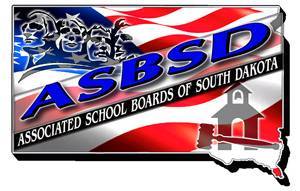The focus of the waiver process turns to general fund cash balance in 2018.
Last year, members of the School Finance Accountability Board acted on teacher compensation waivers and at their first meeting of the year (3/12), the board took a look at the general fund cash balance waiver process.
“I know that it’s a major topic coming up,” Huron Superintendent and SFAB Chair Terry Nebelsick said during the board’s meeting on Monday (3/12).
The 2018-19 school year is the first the general fund cash balance cap is implemented. School districts are required to have their general fund cash balance at or a below a specific percentage of their general fund.
Enrollment tiers for the general fund cash balance caps include:
- Less than 200 students – 40 percent
- 200 to 600 students – 30 percent
- More than 600 students – 25 percent
Enrollment tiers are determined by using the lowest of the current year’s enrollment or the previous two years’ fall enrollments and the general fund cash balance of a district is calculated using its lowest monthly fund balance of the 12-month period.
DOE State Aid and School Finance Administrator Susan Woodmansey noted the department has been helping districts prepare for cap implementation since the funding formula overhaul in 2016.
“We have been talking about it with school business officials,” Woodmansey told board members.
“We will always contact the school districts we believe are in excess.”
Belle Fourche Business Manager and SFAB Member Susan Proefrock added the DOE’s School Finance webpage features spreadsheets with general fund cash balance for each district that district officials could review “to see how” the process works.
DOE will post cash balance calculations for all districts on the School Finance Accountability Board webpage by Friday, November 2. At that time, they will also post the cash balance waiver form, which was updated by DOE and unanimously approved by the board.
Download the waiver process timeline here and an example of the updated waiver form here.
Districts in violation of the general fund cash balance cap will have to submit a waiver prior to the next SFAB meeting, which is set for Thursday, November 15.
Nebelsick encouraged districts with questions about the process to contact DOE.
“If we have schools listening and they have any questions, they’re certainly welcome to call the Department and they can walk through that with them,” Nebelsick said.
In addition to reviewing the general fund cash balance waiver process, board members heard a report on the conditional waivers they approved last year. Each district that received a conditional waiver met the conditions required.
“I would like to thank those schools for their time and commitment,” Brandon Valley Superintendent and Board Member Jarod Larson.
DOE CFO Tami Darnall updated board members on teacher compensation accountabilities. Darnall noted for the 2017-18 school year there are no teacher accountability requirements, but for the subsequent three school years districts must keep teacher pay at or above the level set by the district in the 2016-17 school year.
She added the legislature did not change accountability requirements during legislative, but did pass House Bill 1166, which provides the Joint or Interim Appropriations committee the power to approve, amend or deny teacher compensation waivers and general fund cash balance waivers.
HB 1166 adds the Appropriations committee would suggest changes to a waiver to the School Finance Accountability Board, who would then have 30 days to act on the suggested change and resubmit the waiver to the Appropriations committee, who would then take action on the waiver.
Darnall said the passage of the bill “does add a possible extra step” in the waiver process, but added the language in the bill “is permissive.”
SFAB is scheduled to meet again on November 15 and 16.
For updates on education issues across S.D., check the ASBSD Blog, Bill Tracker page, Twitter feed and Facebook page.
